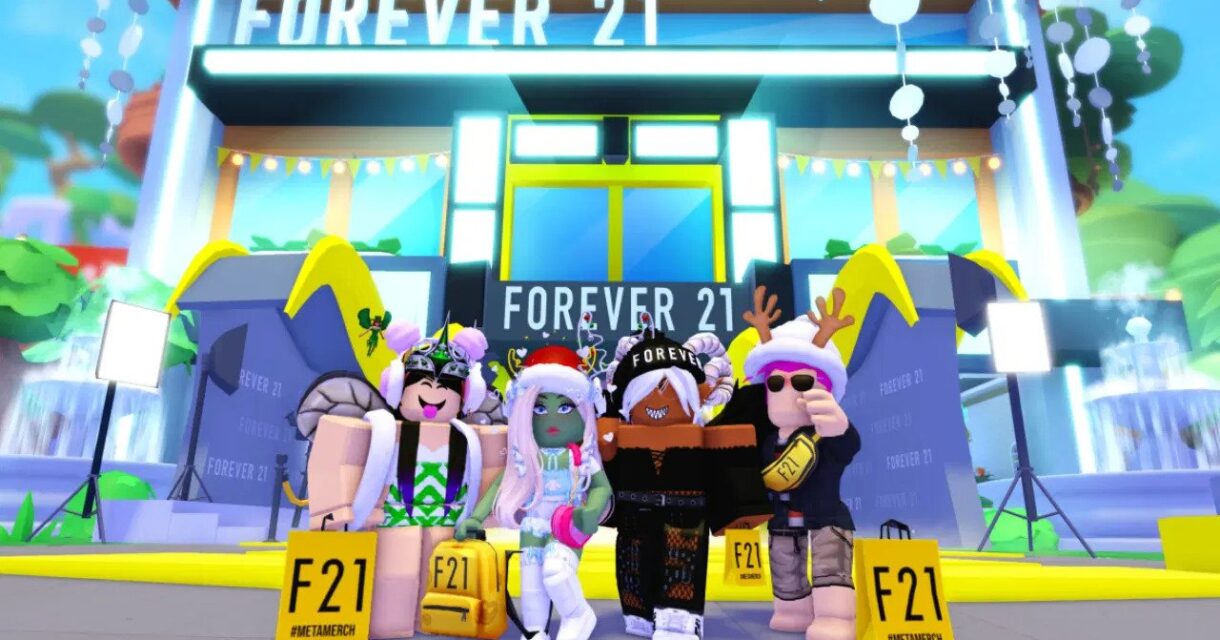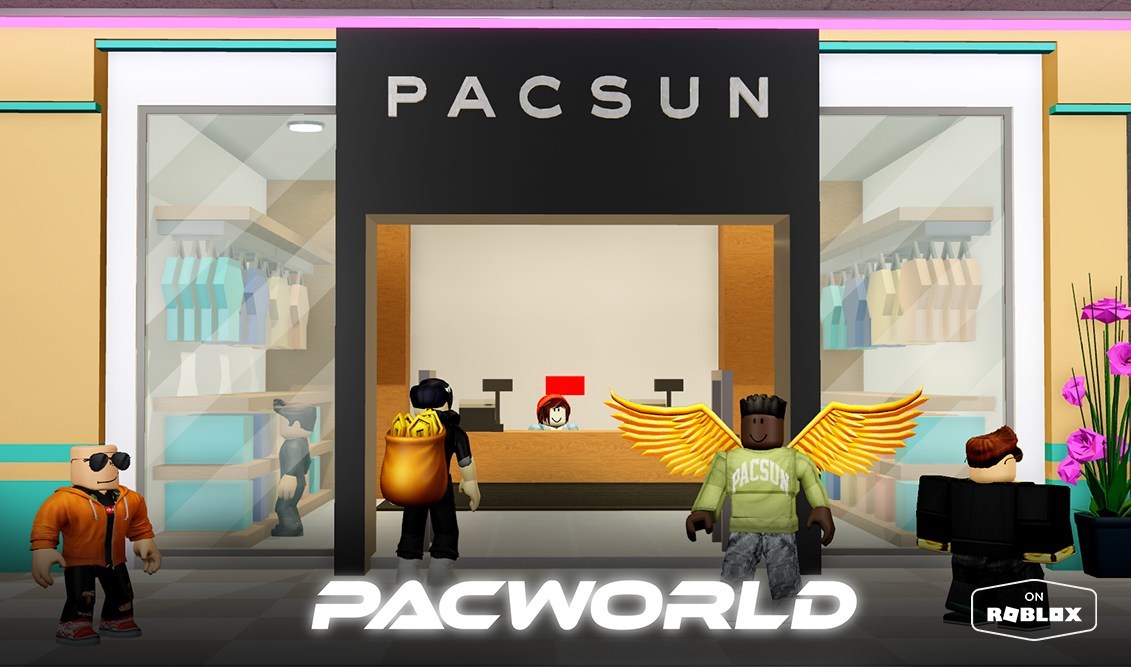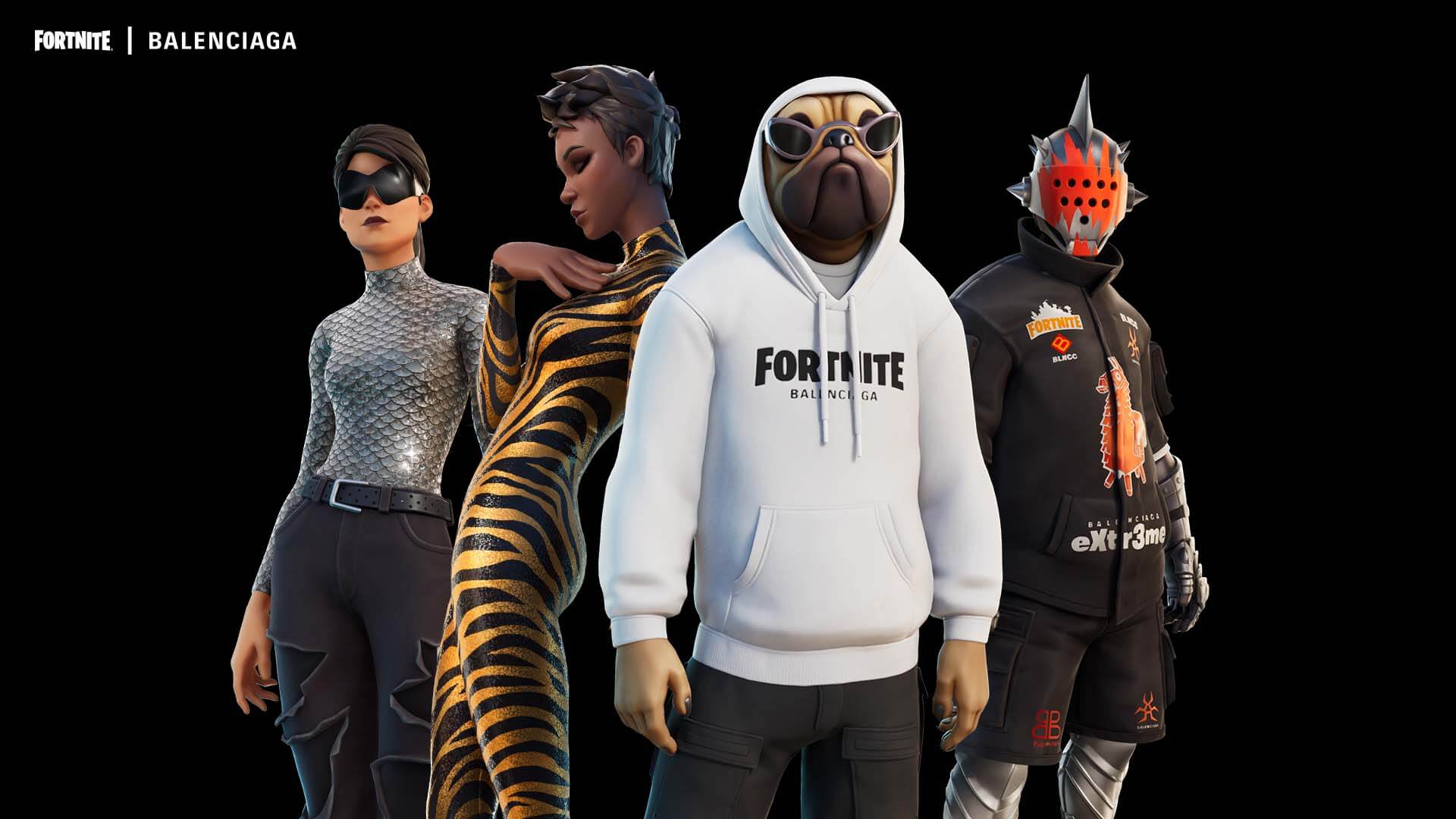Brand Activations and Pop-Ups in the Metaverse 2022

After Meta announced their latest undertaking to launch the concept of the Metaverse, all brands, consumers, and technology connoisseurs have fallen in line with the latest updates to stay ahead.
Brands have ramped up their digital efforts during each phase of the pandemic as we all face a new Metaverse transformation of the internet, also known as Web 3.0. The subsequent development of the internet is around the corner, and brands within popular culture like apparel, music, and entertainment are testing the waters by engaging in various prototypes of the Metaverse. Platforms such as Roblox, Fortnite, and Sandbox are just a few examples of the earliest creations.
To further clarify what the metaverse looks like, envision a compounded version of the internet, where the physical world meets the virtual one. Essentially, users will enter the metaverse as an avatar. Like social networks, users can chat with their friends in a virtual environment, shop together, organize joint business meetings or take remote classes. We are witnessing a dramatic change in nearly every industry, especially in retail and apparel. There’s been such a significant impact that brands have begun shifting their marketing efforts into virtual pop-ups and brand activations that we would usually only see through live experiences.
Recently, we have moved closer to the metaverse, as the latest trends reveal a future where individuals will be living, working, and shopping in a virtual world. For instance, imagine an online store converted into a 3D, virtual experience resembling the physical world. Users can shop as their avatar in this digital storefront and can make their selections to be delivered to their homes. As virtual marketing budgets and resources increase, they will utilize them to enter their brand into the metaverse environment. We will continue to see a rise in brand activations and pop-ups within the metaverse retail space. FGPG touches on the latest brands to develop their activations in the latest metaverse landscape, ComplexLand 3.0, and how they pave the way for metaverse commerce and retail.
ComplexLand in the Metaverse

Complex Networks debuted their first iteration of ComplexLand, their virtual retail experience created in 2020, to replace their traditional in-person ComplexCon shopping event at the start of the pandemic. Since the virtual space went mainstream before the term “Metaverse” was introduced and before the NFT and cryptocurrency rush, it took some time for the public to catch on to the latest development. Facebook, now known as Meta, then formally introduced the metaverse at the end of 2021, and brands jumped on the wave, hoping to stay ahead of the curve. Today, ComplexLand continues its success in the virtual world as its virtual event returns this year as a hybrid event.

We just witnessed ComplexLand wrap up their 2022 virtual event in May. From Wednesday, May 25, through Friday, May 27, the essential names in streetwear, sneakers, and art gathered at ComplexLand 3.0 for product drops and events. Last month also marked 20 years of Complex, which means their largest virtual event showcased a retrospective covering two decades’ worth of history. The event’s elements returned, allowing users to create avatars that they would like to share and explore virtual stores to shop and buy from brands. Market, Billionaire Boys Club, Pacsun, Pleasure, and Round Two are just a few of the brands that participated this year.

Pacsun, a longtime partner of ComplexCon, introduced its first brand activation at Complexland, which it sees as “ a unique intersection between fashion, technology, community, music, and gaming in the metaverse.” ComplexLand supports the retailer to expand its digital footprint beyond its world in Roblox, purchases its real estate in PS The Game and Sandbox, and allows it to showcase its PS Mall Rats NFT series. Pacworld allows you to explore Pacsun’s latest drops and play as an owner and operator of a store within their mall.
Metaverse Prototypes by Fortnite, Roblox, and Sandbox
We are only in the initial stages of developing and integrating all aspects of the metaverse. Today, we are only capable of experiencing the embryo of what the metaverse might look like by exploring prototype worlds that are being built by gaming corporations.
Epic Games’ most popular platform, Fortnite. This virtual space was initiated when Fortnite hosted one of the world’s first virtual concert with Travis Scott in 2020. The concert was simultaneously attended by 12.3 million gamers. The Travis Scott concert is not the only event hosted by Fortnite. A Marshmello virtual concert took place in Fortnite back in February 2019 and was attended by 10.7 million people. It’s evident that Fortnite concerts have drawn a lot of attention each year, as Travis Scott’s concert broke Fortnite’s own record for a number of attendees.
Another noteworthy brand involved in developing the initial stages of the metaverse is Roblox. Where users spent nearly 10 billion hours playing in the first quarter of 2021. On average, 42 million users connect daily on this platform and spent $652.000.000 in total for digital assets.
Other Luxury Brands Pop-Ups in the Metaverse
With the seen success of virtual entertainment and retail, brands are jumping on board by creating their very own virtual activations and pop-ups within these worlds. These are increasing in popularity as an alternative marketing channel that allows brands to expand within the virtual space and keep up with the latest trends. An influx of luxury brands continues to infiltrate the metaverse with their very own designs and branding relationships.

Epic Games formed a partnership with the brand Balenciaga in order to bring Fortnite players high-end fashion for their avatars. Balenciaga is working on virtual apparel and opening an in-game Balenciaga storefront.
It has become very common for fashion brands to design virtual products for global consumers online. Gucci partnered with Roblox in May to create a surreal virtual garden, and,back in 2019, Louis Vuitton had designed looks for the characters of League of Legends by Riot Games.

Ultimately, as the metaverse becomes the primary choice for utilizing the internet in the future, brands will focus their resources on generating content and curating marketing strategies for VR and AR experiences. By rendering products into 3D models or preparing assets for virtual environments, brands can collectively participate in the metaverse. The metaverse will create a new way for brands to create the shopping experience of the future, complete with life-like models, immersive 3D content, and realistic AR filters.
We are a unique collective of ambitious makers, doers, and dreamers that work as one to push forward the power of what’s possible.
FG|PG was founded nearly 21 years ago. Today we’re one of the largest woman-owned, WBENC Certified, live, hybrid and virtual experiential agencies in the US. That trajectory isn’t accidental. It’s the result of a commitment to continually evolve, to never stop learning, and to always listen to our clients’ needs.